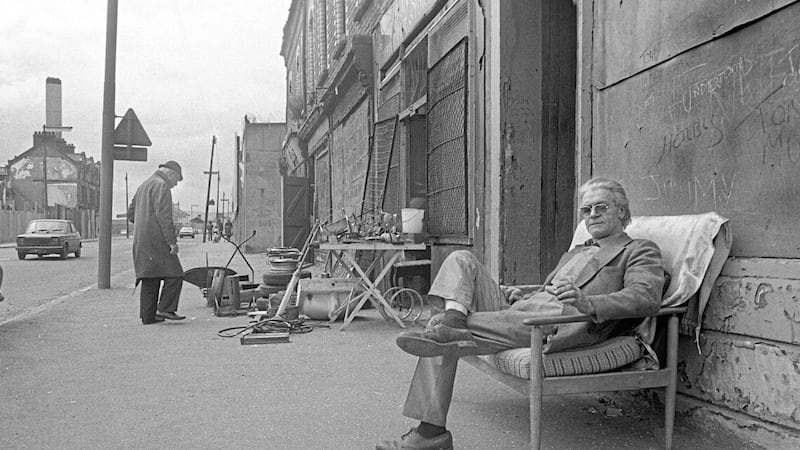NORTHERN Ireland is facing its greatest labour market challenge since the 1980s, it has been claimed.
Ulster Bank economist Richard Ramsey has warned that an 89 per cent surge in people claiming unemployment benefits during April marks just the start of a deterioration of the north’s labour market.
The latest official data released by the Northern Ireland Statistics and Research Agency (NISRA) on Tuesday revealed the sharpest rise in claimants on record.
The number of new claims increased by 26,500 to 56,200 last month. UK-wide, the number rocketed by 856,500, taking the total of 2.1 million.
The Northern Ireland figure includes Jobseeker’s Allowance claimants and those claimants of Universal Credit who were claiming principally for the reason of being unemployed.
The data was captured on April 9, two weeks after lockdown restrictions were announced UK-wide.
Mr Ramsey said the figure is likely now between 65,000 and 70,000 in the north.
“The previous peak in Northern Ireland’s claimant count of 7.3 per cent (December 2012) is likely to be eclipsed in May or June. The pace and scale of the change in the labour market is nothing short of alarming and we are only at the start of the labour market deterioration,” he said.
Despite a spike in proposed redundancies in the north during April (783), it’s believed that the UK Job Retention Scheme has largely limited wide-scale job losses.
The latest figures from HMRC indicated that 7.5 million workers are now being supporting by the scheme in the UK.
But while the furlough scheme has been extended until the end of October, there are fears that the end of the support mechanism will inevitably result in a spike in job losses.
“When the scheme ends, or is altered, it is inevitable that a significant proportion of these will turn into redundancies,” said Mr Ramsey
“It should also be remembered that wages are another labour market pressure point not currently under the spotlight. For those who keep their jobs, escaping with pay freezes as opposed to outright wage cuts will represent a good outcome.
“Northern Ireland faces its biggest labour market challenge since the 1980s,” he added.
Grant Thornton economist Andrew Webb said while the spike in claimants was not wholly unsurprising, he said: the immediacy and scale of the increase was “shocking”.
“It does raise serious concerns around the fundamental strength of the labour market and how well the economy can bounce back,” he said.
“Especially as job retention and business support schemes are scaled back.”








